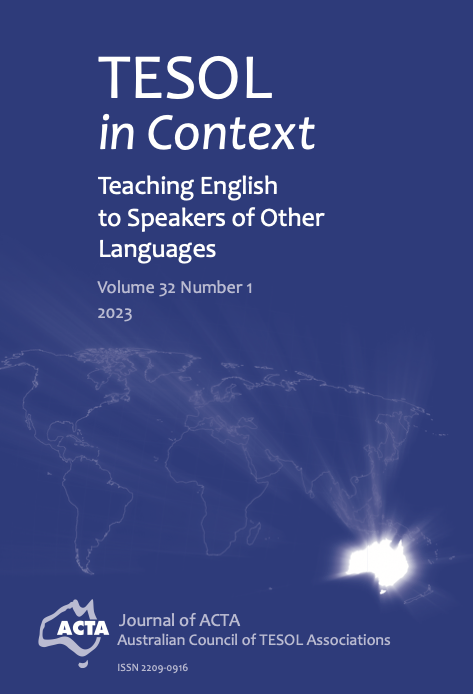Using teacher-researcher collaborations to respond to the demands of ‘real-world’ EAL/D learning contexts across the curriculum
DOI:
https://doi.org/10.21153/tesol2023vol32no1art1846Abstract
Despite the increasing levels of cultural and linguistic diversity represented in Australian classrooms, many universities do not adequately prepare teachers to teach English as an additional language or dialect (EAL/D). Moreover, in neoliberal educational regimes, teaching tends to remain steadfastly focused on monolingual conceptions of literacy development, and ‘evidence-based’ practices tend to reflect this stance. In this paper, we argue that due to the diversity and complexity of EAL/D learner cohorts, and current systemic constraints, teacher-researcher collaborations can be one avenue available to teachers to develop their knowledge and skills whilst simultaneously guiding future research. Drawing on ‘identity texts’ and arts-based approaches, we describe our collaboration with a teacher in a super-diverse primary school classroom setting to illustrate the ‘messiness’ of classroom research, the challenges, and the considerable opportunities to effectively respond to EAL/D learner needs whilst valuing and embracing their diverse linguistic repertoires.
Downloads
Published
Issue
Section
License
Copyright (c) 2023 TESOL in Context

This work is licensed under a Creative Commons Attribution-ShareAlike 4.0 International License.






